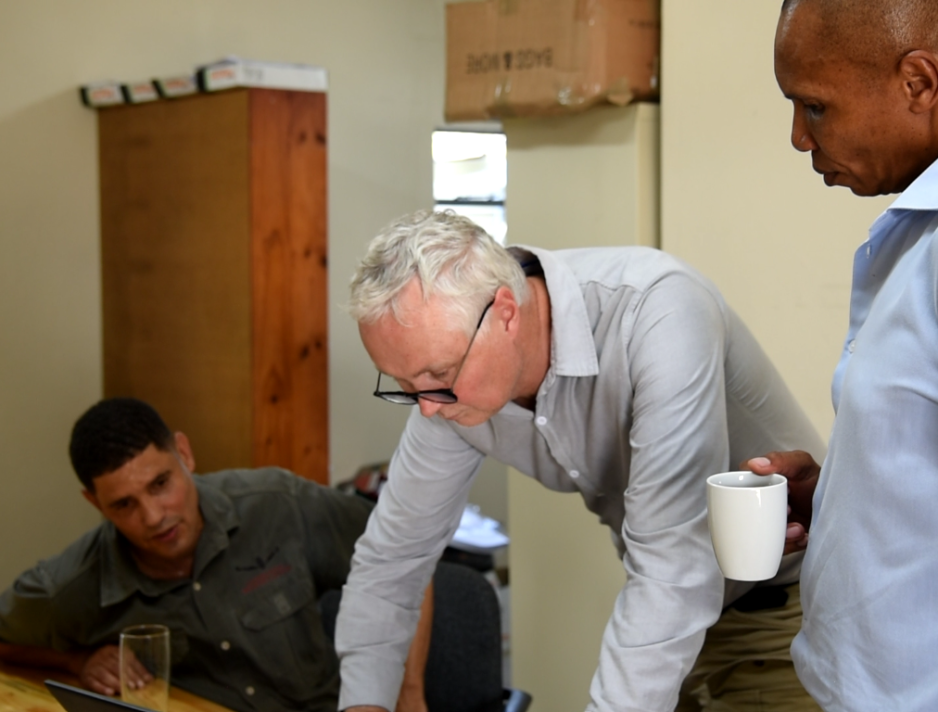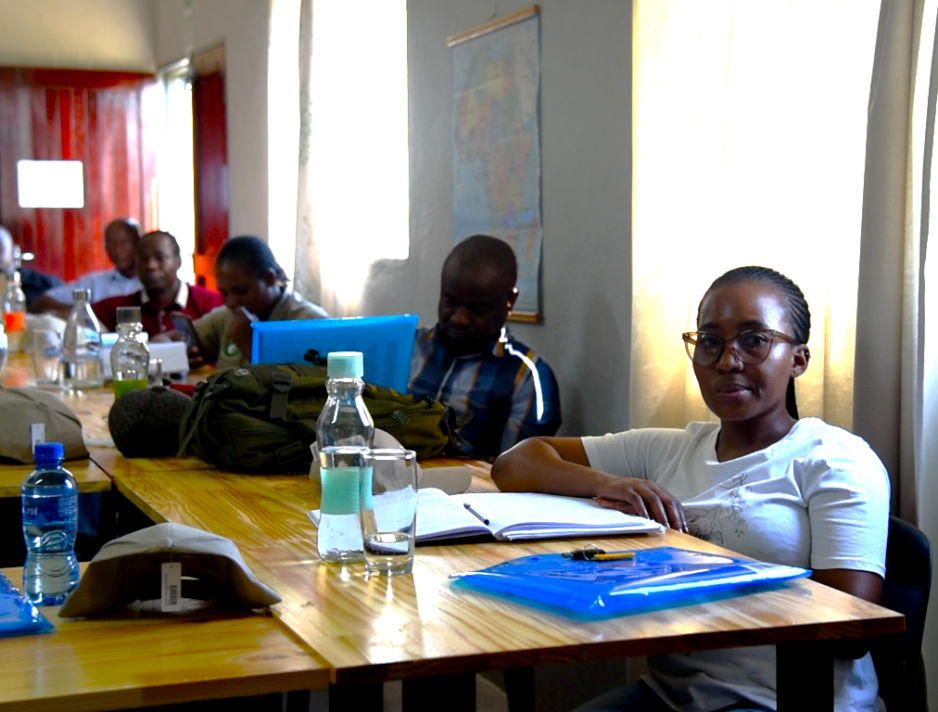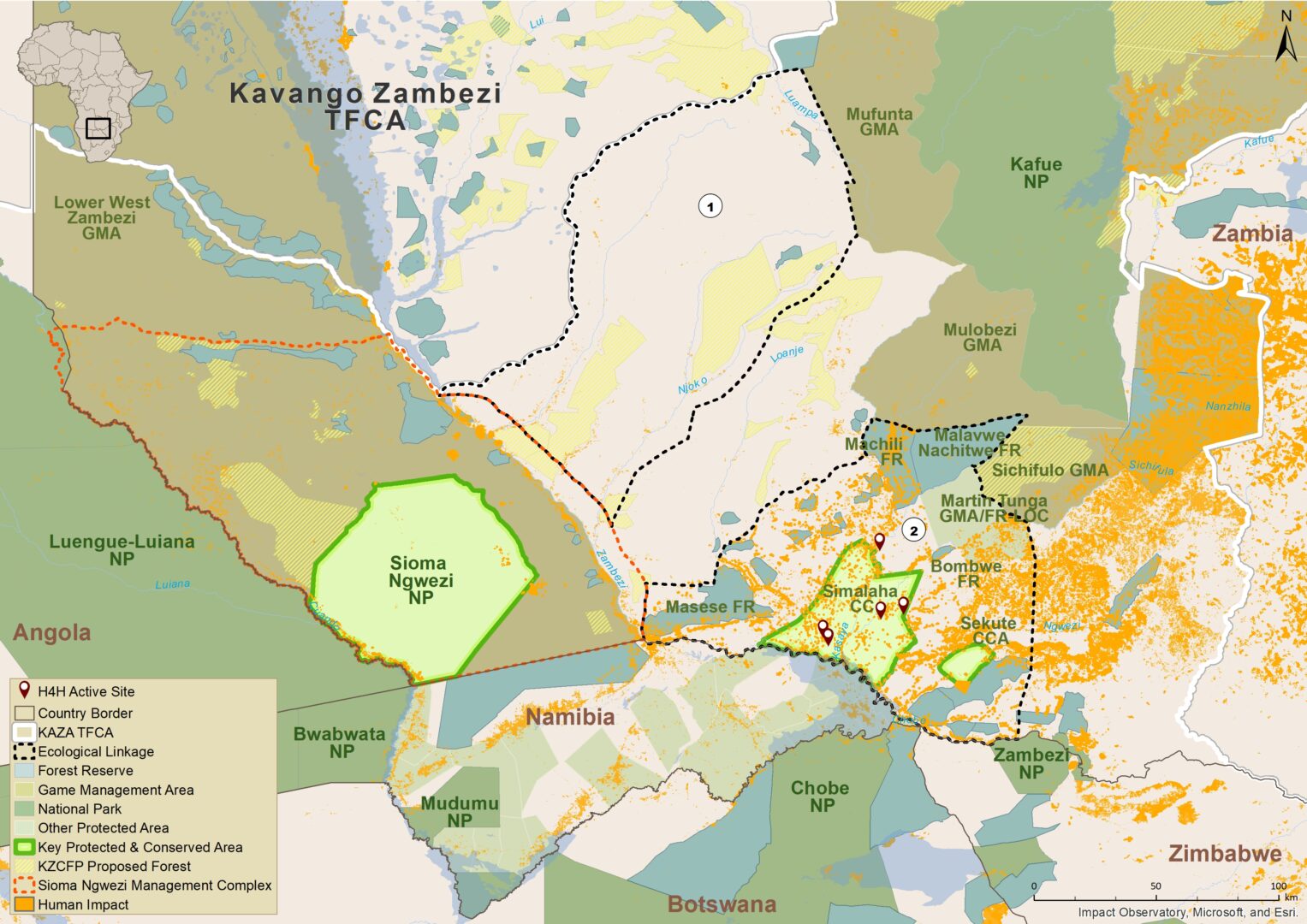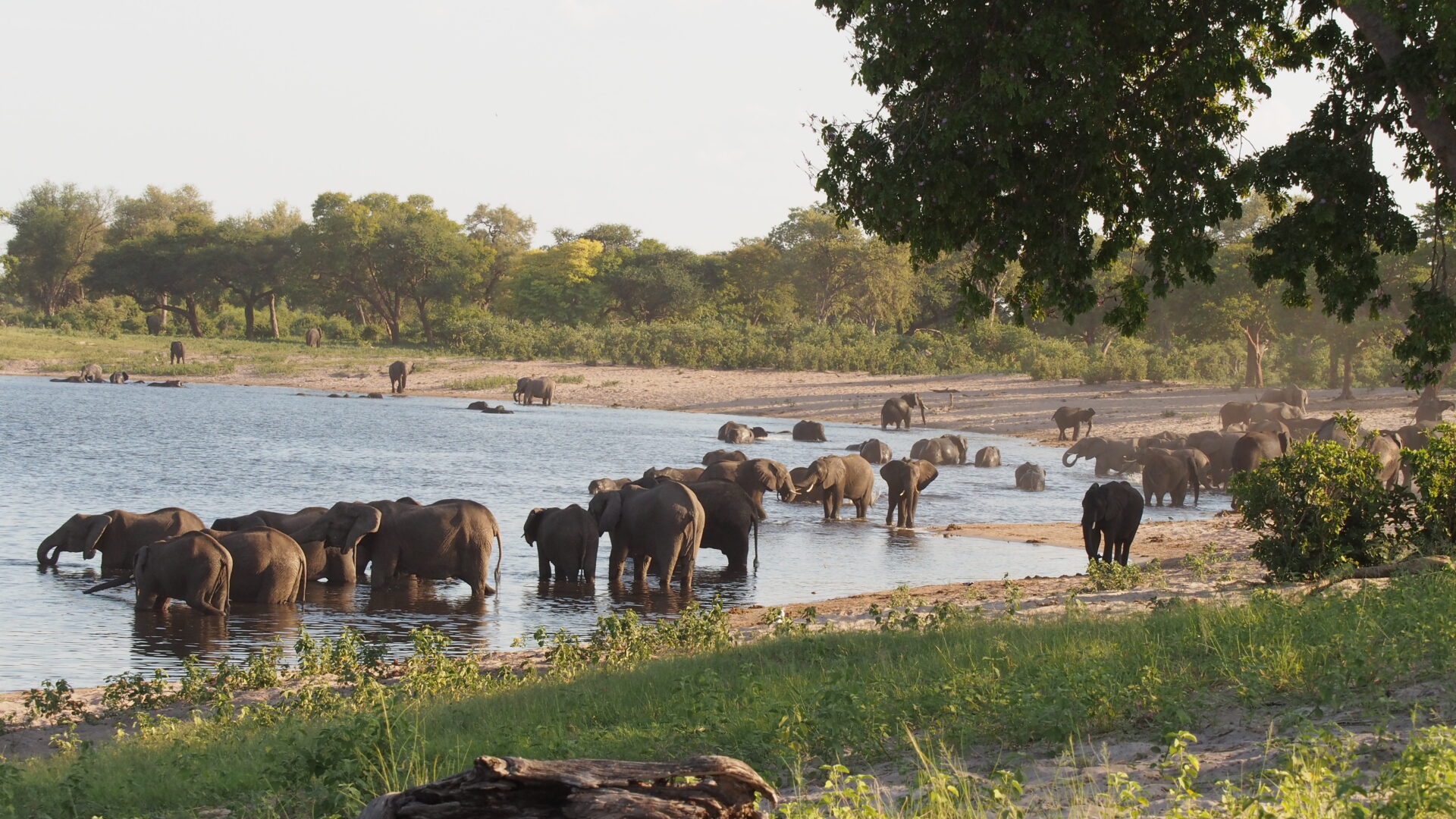A revolution in ranger training is poised to take effect in southern Africa. It is aimed at closing the gap between transnational organised crime and rangers on the frontlines of conservation – on both sides of national borders.
Driven by strong global demand, and high prices on the illegal market, poaching and trafficking of natural resources are on the rise, and methods employed by criminal groups are increasing in sophistication. The problem requires a slightly different approach – driven by enhanced information and coordination, because without an equalising force, syndicates will continue to have the upper hand.
Gillian Rhodes, Peace Parks Foundation’s Project Manager for Combatting Wildlife Crime
Across vast transboundary landscapes that span multiple countries, it’s time to level the playing fields. Rangers and law enforcement officers need a toolkit of specialist technical, analytical and management skills to better coordinate responses, raise standards of practice and crack down harder on wildlife crime syndicates.
Breaking New Ground
Now, information-sharing, technology and boots on the transboundary ground are coming together in a pioneering training approach, giving the edge to those working against the criminal odds. The Swedish Defence University (SEDU), in collaboration with Peace Parks Foundation and the Southern African Wildlife College (SAWC), has responded by developing a new training curriculum, Specialist Environmental Crime Training. It has been precisely researched and designed to better equip rangers and other law enforcement officials facing significant wildlife crime challenges spanning these adjoining cross-border landscapes. Supported by South African National Parks (SANParks), South Africa’s Department of Forestry, Fisheries and the Environment, and the private sector, and in partnership with the KAZA (Kavango Zambezi) Secretariat, the first course of its kind recently took place in the College’s newly established Protected Area Integrity Operations Room.

What’s groundbreaking is that it’s the first course of its kind in Africa, and the first in conservation. Now we are equipping field rangers with the knowledge they need to be a step ahead of poachers, aiming to change the dynamics and dimensions within our defences. Together, we’re educating and empowering our rangers, to make them more proficient in decision-making in the field and, specifically, linking them to technology.
Altin Gysman, Head of Protected Area Integrity and African Field Ranger Training Services at SAWC
The 21 students attending this ten-day introductory course came from Angola, Botswana, Namibia and Zambia representing four of the five Partner States within the KAZA transboundary landscape, speaking to the importance of joint operations. Their curriculum consisted of modules designed to provide the much-needed advantage over criminal networks. The focus areas are equipping rangers with enhanced skills for introducing centralised command and control through operational room management, intelligence and information-led policing, and crime scene management.

Selected modules of the newly developed curriculum were piloted for the Kwando Task Force, a special reaction unit developed through the Peace Parks/ KAZA Joint Law Enforcement Project, supported by the U.S. Department of State’s Bureau for International Narcotics and Law Enforcement Affairs (INL). It is hoped that the new curriculum will promote collaborative action at the international level, to help identify, investigate and prosecute the people and groups behind the crime, as well as encouraging cooperation between arresting authorities and communities.
Understanding the Obstacles to Prioritise the Response
SEDU’s aim was to address the complex forces at play by designing a relevant and responsive course, motivating them to engage with countries across southern Africa which sit within the Great Limpopo, Malawi-Zambia and KAZA transboundary landscapes.

KAZA spans an area of approximately 520 000 km², the combined size of France and Germany, and includes five Partner States. With a multitude of transit routes and an abundance of biodiversity, including 36 protected areas that are home to Africa’s largest adjoining elephant population and the greatest connected lion population in southern Africa, KAZA is a prime target of organised wildlife crime groups. Ranger capacity and law enforcement over such sizable areas are stretched: overwhelmed, under-resourced and often uncoordinated; this poses huge obstacles. Their day-to-day operations often function as an emergency service reacting case-by-case, and in isolation, to issues as they arise.
Technology in a world of global trade has compounded the problem. The illicit trade has evolved to benefit from a rapidly digitised world: criminal groups are making use of new technologies and platforms to traffic wildlife, and new avenues are being created through the Internet to make trade even easier. This makes for a technical arms race between transnational organised crime and effective crackdowns.

Syndicates take full advantage of the many stumbling blocks at lengthy, porous borders, which are difficult for border police to effectively monitor and patrol, putting them under intense pressure. Conflicts with poachers are responsible for 50% to 70% of ranger fatalities on the job, according to Thin Green Line. With insufficient law enforcement and cases failing to go to trial, poachers who are arrested are often, within weeks, back out and re-committing crimes. Teams on the ground need more advanced skills and awareness, at a more technical, analytical level; and at scale.
Africa’s place in the Criminal Picture
Transnational organised crime is a globally overwhelming challenge facing the African continent, and more so since the COVID-19 pandemic. Fallout from wildlife and forest crime extends beyond environmental harm, with increases in violence and corruption and the weakening of governments. Local crime is fuelled, communities become less safe and their natural resources unsustainable.
The latest data from the Global Organised Crime Index reveals that Africa scores the lowest of all global regions in its ability to withstand or counteract organised crime activities. Southern African nations face major obstacles in preventing, investigating and prosecuting cases. This extends from international cooperation, national policies and laws, and police and defence forces down to localised ranger teams and communities.
Joining Hands and Funds
Combating a global phenomenon such as illegal wildlife and forest crime requires partnerships and collaboration at all levels. Governments, businesses, civil society, international organisations and communities in all corners of southern Africa have a part to play. Developing countries in particular need assistance in building their capacity to counter these threats; Partner States acknowledge the urgent need for coordinated responses and community involvement, and the advantages of advanced training.

We have a lot to gain from working together on how to prevent and fight crimes, regardless of what country we’re in. As criminals operate transnationally, so should we.
Lena Klasén, Adj. Professor, Linköping University, Sweden and Director Research, Swedish National Police Authority
Peace Parks Foundations partnerships with the U.S. Department of State’s Bureau for International Narcotics and Law Enforcement Affairs (INL) and the CITES MIKE Programme Support for Strengthening Wildlife Law Enforcement Capacity and Cross-border Collaboration in Transboundary Areas (sub-project Combatting Wildlife Crime and Strengthening Transboundary Law Enforcement Collaboration in Kwando WDA MIKE sites) has been key to making all of this possible.
Funding is of the utmost importance, particularly in the field of conservation, and to equip rangers with training, equipment and technology to make them proficient, effective and professional in their tasks. Funding is enabling us to make this course a critical success for students. With the feedback given from the course, you can see what they have learnt and how meaningful it is to them. They have shown what they would want to do when they go back to their duties: to achieve the impact and effect that will be felt in the future.
Altin Gysman
Through this immense collaborative effort, combating wildlife crime stands a well-advanced chance of rising to the challenge.





